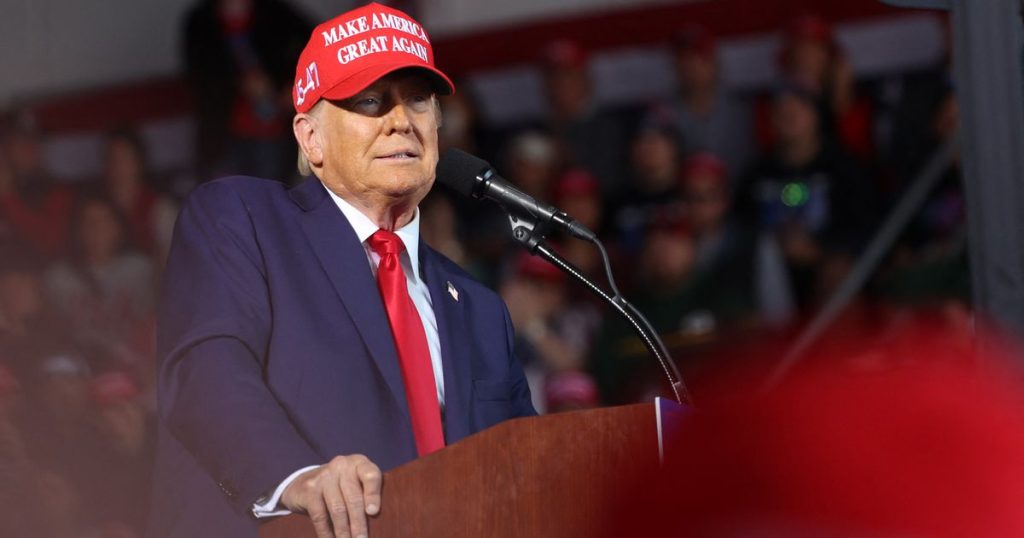A new analysis by a D.C. think tank has found that Former President Donald Trump’s domestic policy agenda would result in a tax increase for the majority of American households. This increase is largely due to his proposed tariffs on imported goods. While Trump has proposed tax cuts such as eliminating taxes on workers’ tips and overtime pay, as well as allowing unlimited federal deductions for property taxes paid to state and local governments, these cuts would be offset by the proposed tariffs. The Institute on Taxation and Economic Policy found that the tax cuts and tariffs combined would cost the middle 20% of income distribution households an average of $1,530 in 2026, while the richest 1% would save $36,320.
Trump has proposed a 20% tariff on all imported goods, with tariffs of 60% or higher on imports from China. While Trump claims that the tariffs would not amount to a national sales tax, economists argue that American consumers would ultimately bear the burden of the tariffs as companies importing goods would increase their prices to offset the cost. The Institute on Taxation said the proposed tariffs would disrupt the economy, lead to substantial price increases on imported goods, damage industries reliant on imports, hurt employment in those industries, and raise prices for domestically produced goods.
Trump’s tax plans also include tax cuts on certain types of income such as tips, overtime pay, and Social Security benefits. However, the report found that these cuts would disproportionately benefit upper-middle-class earners, with low and middle-income earners seeing only small benefits. The authors predict that individuals making between $28,600 and $55,100 per year would see an average tax reduction of $190, while those making between $157,500 and $360,000 would see a larger average reduction of $3,420. Critics have warned that these policies could be abused, leading high-income earners to shift into gratuity-based pay to avoid taxes. The Center for a Responsible Federal Budget estimated that Trump’s tax plans could cost the government as much as $15 trillion.
In response to these criticisms, Trump campaign adviser Brian Hughes downplayed the deficit impact of the tax proposals, stating that the historic tax cuts laid the foundation for economic growth and increased federal revenue. Hughes claimed that Trump’s plan would rein in wasteful spending, defeat inflation, reduce interest costs, and ignite economic growth to fuel federal revenue. However, the Institute on Taxation and Economic Policy and other economists have warned that the proposed tax cuts and tariffs could have a significant impact on the economy, leading to price increases, job losses in industries reliant on imports, and changes in worker and employer behavior.
Overall, the analysis of Trump’s domestic policy agenda shows that while there are proposed tax cuts that could benefit some households, the tariffs on imported goods would largely offset these savings. The impact of these policies could result in higher costs for consumers, job losses in certain industries, and changes in worker and employer behavior. Critics have raised concerns about the distribution of benefits from the proposed tax cuts, the regressive nature of the tariffs, and the potential for abuse of the policies. The debate over Trump’s tax plans underscores the challenges and complexities of tax policy and its implications for the economy and society as a whole.


